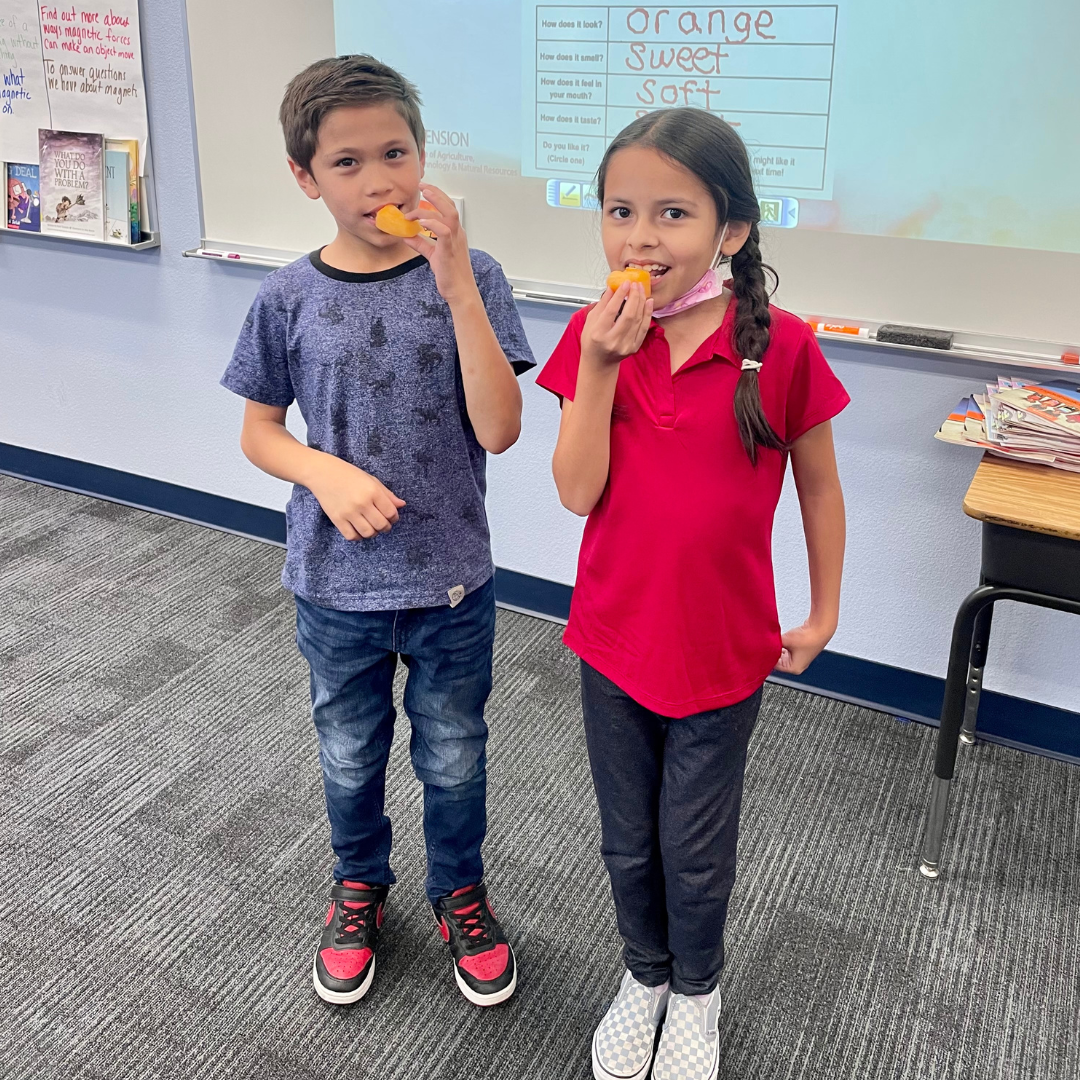What did the honeydew say to the watermelon?
September 15, 2022
We cantaloupe! HAHAHAHA. Bad jokes aside, we’ve been having all kinds of fun with the students in our Nutrition Education classes this month. September’s Produce Pick of the Month is all about cantaloupe.
Fun Fact: Cantaloupes originated in Persia and Northern Africa over 4,000 years ago. Europeans brought them to North America in the late 1400ʻs. In the 1900ʻs, cantaloupes were planted in Fallon, Nevada bringing an abundance of cantaloupes in the 1920ʻs and 1930ʻs. Cantaloupes are still a major crop grown in Fallon to this day, and there’s even an annual festival dating back to 1911.
Students in our class learned this and many other fun facts about this sweet fruit. They also took part in a sensory evaluation, analyzing its qualities and writing down adjectives that describe them. As can be seen in the picture, many of the kids thought cantaloupe smelled and tasted sweet, and felt soft. Most kids said they liked it!

You’d be surprised, but there were many kids in the class who had never tried cantaloupe before – and they’re in the third grade! This is a reminder of why we do this important work. Our goal is to expose kids to the wide variety of fruits and vegetables, and how they can be incorporated into their diet. This, coupled with our physical activity in each class, provides the building blocks to teach them how to live a healthy and active lifestyle.
To bridge the gap from school to home, educational take-home handouts, written in both English and Spanish are provided. Content includes that month’s themed fruit or vegetable with purchasing tips, recipes, facts and statistics on how it serves the body, and more. A reminder Choose My Plate place mat is also provided to the students to mimic a nutritious meal at home. Students learn about healthy choices and Choose My Plate throughout the year’s instruction.
This curriculum promotes health practices for lifelong, healthy lifestyles in children. It takes a village to teach these children healthy eating habits, and we need your support now more than ever to continue our important work. If you like what we’re doing, please consider making a donation to support the Nutrition Education initiative. Any amount, large or small, helps!


